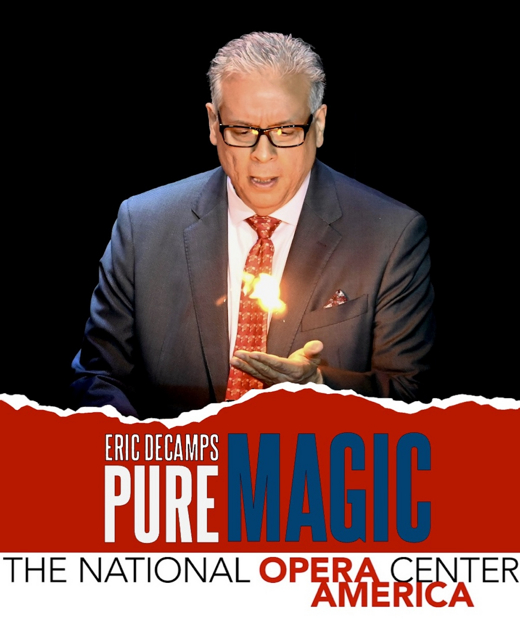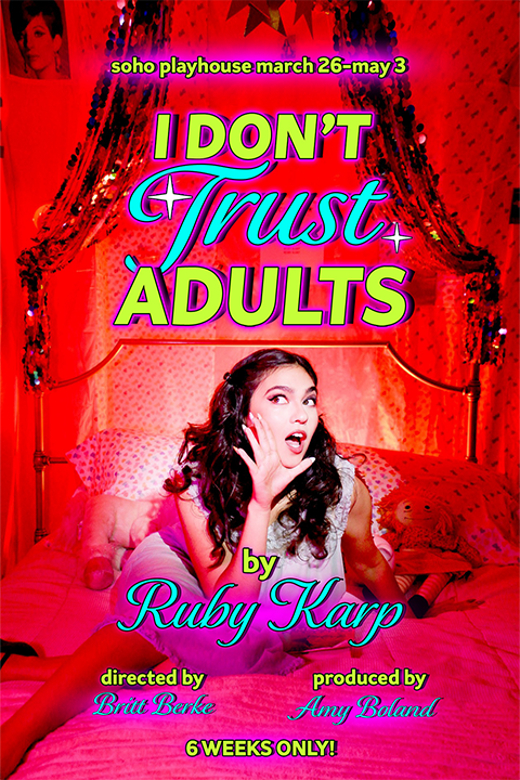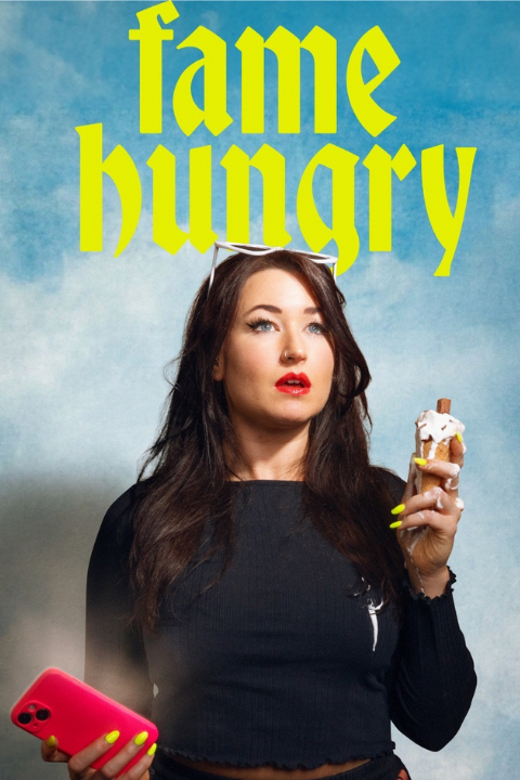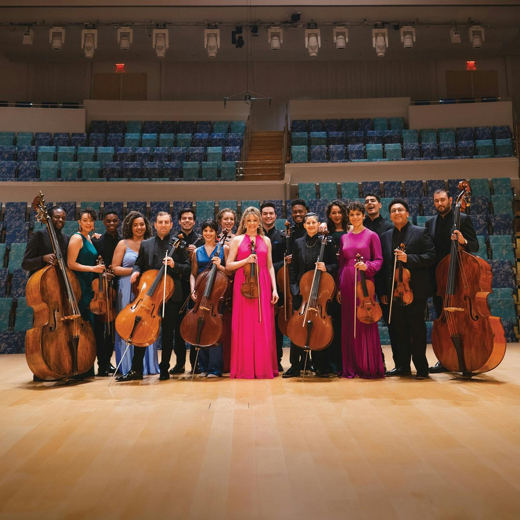The Sphinx Organization’s “flagship performing entity” presents a varied and vibrant program of string music in this acclaimed annual event. It opens with a riveting movement by 19th-century pianist, composer, singer, and conductor Teresa Carreño, a larger-than-life New Yorker from Venezuela who, by age 10, had performed for Abraham Lincoln at the White House during her first year of touring the US. Additional concepts of American music are explored in Derrick Skye’s multifaceted and optimistic American Mirror, Part One; works (including a New York premiere) by renowned violinist-composer Curtis Stewart, who “translates stories of American self-determination to the concert stage”; the Overture from Treemonisha, written by foundational ragtime composer Scott Joplin and newly arranged by Jannina Norpoth; and an imaginative nod to Joplin by celebrated film composer and advocate Levi Taylor. Njioma Chinyere Grevious, Violin
Tai Murray, Violin
Britton-René Collins, Percussion
Ages: For all age
Cast and Creative team for Sphinx Virtuosi Performs “American Form/s” at Stern Auditorium / Perelman Stage, Carnegie Hall
Cast
Britney Spears' Conservatorship Case and the Fight Against Guardianship Abuse
In recent years, the issue of guardianship and conservatorship abuse has garnered increasing public attention, particularly in the United States, where high-profile cases have highlighted the potential for abuse and exploitation. At the forefront of this movement is the highly publicized battle of pop star Britney Spears, whose fight to regain control of her life from the conservatorship imposed by her father captivated the world. Her case shed light on the intricate and often troubling system of guardianship, spurring debates and legal reforms that aim to protect vulnerable individuals.
This article explores Britney Spears' case, its broader implications for guardianship laws in the U.S., and other notable instances of guardianship abuse, such as those involving actress Nichelle Nichols and socialite Brooke Astor. These stories collectively highlight the urgent need for reform in guardianship systems to ensure that individuals retain their autonomy and rights, while being protected from financial exploitation and control.
Britney Spears' Battle: A Global Awakening
Britney Spears’ legal struggle to end the conservatorship that had governed her life for 13 years became a flashpoint in the fight against guardianship abuse. Spears, a global pop sensation, was placed under conservatorship in 2008 following a public mental health crisis. Her father, Jamie Spears, was appointed her conservator, granting him control over her finances, career decisions, and personal matters. While conservatorships are typically meant to protect individuals deemed incapable of making decisions for themselves, Spears' case raised significant concerns about the extent of control exerted over her.
For over a decade, Spears was restricted in her autonomy, unable to make basic life decisions such as choosing her own medical treatments or spending her own money without approval. Her conservatorship became a point of contention as she returned to work, releasing albums, and performing in Las Vegas residencies, all while under the strict oversight of her father. Critics argued that if Spears was capable of such extensive professional work, she should have been allowed greater personal freedom.
The turning point came in 2021, when Spears, in a dramatic court testimony, publicly condemned the conservatorship as abusive. She spoke about being forced to take medication against her will, restricted from having children, and subjected to invasive surveillance. The testimony sparked the #FreeBritney movement, with fans, legal experts, and human rights activists calling for an end to the conservatorship and broader reforms in guardianship laws.
In November 2021, a Los Angeles judge ruled to terminate the conservatorship, restoring Britney Spears’ independence. While Spears’ case concluded with a positive outcome, it brought attention to the wider issue of guardianship abuse in the U.S., where an estimated 1.3 million adults are under guardianships, with their assets totaling nearly $50 billion .
Nichelle Nichols and the Plight of Elders
Britney Spears’ case is not an isolated one. Elderly individuals, particularly those suffering from cognitive decline or other health issues, are often placed under guardianships, sometimes leading to similar situations of exploitation and control. A notable example is Nichelle Nichols, the beloved “Star Trek” actress.
Nichols was placed under guardianship due to concerns over her declining health, but the situation quickly became contentious. Her son was appointed as her guardian, a decision that sparked legal battles and public outcry. Nichols’ former manager and friends accused her son of isolating her and mismanaging her estate, raising serious questions about elder autonomy and rights. Like Spears, Nichols’ situation underscored the need for greater oversight in guardianship cases, particularly to protect older adults from potential exploitation by their own family members or caregivers.
Nichols’ case is part of a broader pattern of elder guardianship abuse, where aging celebrities and wealthy individuals are placed under guardianships, often resulting in the depletion of their estates and the erosion of their personal freedoms.
Brooke Astor and Financial Exploitation
Another high-profile case of guardianship abuse involved socialite and philanthropist Brooke Astor. Astor, a prominent figure in New York high society, was placed under guardianship after it was revealed that her son, Anthony Marshall, had been financially exploiting her. Astor, who was suffering from Alzheimer’s disease, was deprived of basic care while her son embezzled millions from her estate. Marshall was eventually convicted of elder abuse and fraud, but the case brought national attention to the issue of financial exploitation under the guise of guardianship.
Astor’s case, like those of Spears and Nichols, highlighted the vulnerabilities of individuals under guardianships, particularly when family members are involved. It also demonstrated the potential for financial exploitation in a system that is supposed to protect individuals but can, in reality, strip them of their autonomy and wealth.
The Need for Guardianship Reform
The cases of Britney Spears, Nichelle Nichols, and Brooke Astor all point to a fundamental problem within the guardianship system: a lack of oversight and accountability. While guardianships are intended to protect those who are unable to care for themselves, they can easily become tools of control and exploitation. In many cases, individuals under guardianship lose their legal rights, including the ability to manage their finances, make medical decisions, and even marry or vote.
In the wake of Spears' case, there have been increasing calls for guardianship reform in the U.S. Legislators and advocates are pushing for changes that would prioritize the autonomy and rights of individuals under guardianships, while providing greater oversight to prevent abuse. Proposed reforms include regular reviews of guardianships, increased transparency in financial reporting, and the establishment of clear criteria for ending a guardianship when the individual has regained their capacity.
Additionally, there is growing advocacy for alternatives to guardianship, such as supported decision-making, which allows individuals to retain control over their lives while receiving assistance in making decisions. This approach could help prevent the kind of long-term control that Spears experienced under her conservatorship.
Conclusion
The fight against guardianship abuse is far from over, but cases like Britney Spears’ have brought much-needed attention to the issue. Spears’ successful bid to end her conservatorship has given hope to others in similar situations and has sparked a nationwide conversation about the need for reform. As more cases of guardianship abuse come to light, it is imperative that legal systems evolve to better protect vulnerable individuals while safeguarding their autonomy and rights.
To learn more about guardianship removal and the broader implications of these high-profile cases, you can access the full report here: Guardianship Removal and Legal Insights.
Stern Auditorium / Perelman Stage, Carnegie Hall Frequently Asked Questions FAQ
Stern Auditorium / Perelman Stage, Carnegie Hall is at 881 7th Ave, New York, New York, NY.
Videos
 |
Void Main
cirqueSaw (1/8 - 1/26) | |

|
THE MUSEUM OF MODERN ART PRESENTS To Save and Project: The 21st MoMA International Festival of Film Preservation JANUARY 9, 2025 – JANUARY 30, 2025
The Museum of Modern Art (1/9 - 1/30) | |

|
Model Majority Year of the Snake Comedy Show
Caveat (2/1 - 2/1) | |

|
Verse Intro Cabaret
SoHo Playhouse (1/12 - 1/12) | |

|
PURE MAGIC - A Perfromance of Contemporary Conjuring
The National Opera America Center (1/10 - 1/11) | |

|
Rosettes
Good Shepherd-Faith Presbyterian Church (4/26 - 4/26) | |

|
I Don't Trust Adults
SoHo Playhouse (3/26 - 5/3) | |

|
FAMEHUNGRY
SoHo Playhouse (1/22 - 2/8) | |
| VIEW SHOWS ADD A SHOW | ||
Recommended For You



